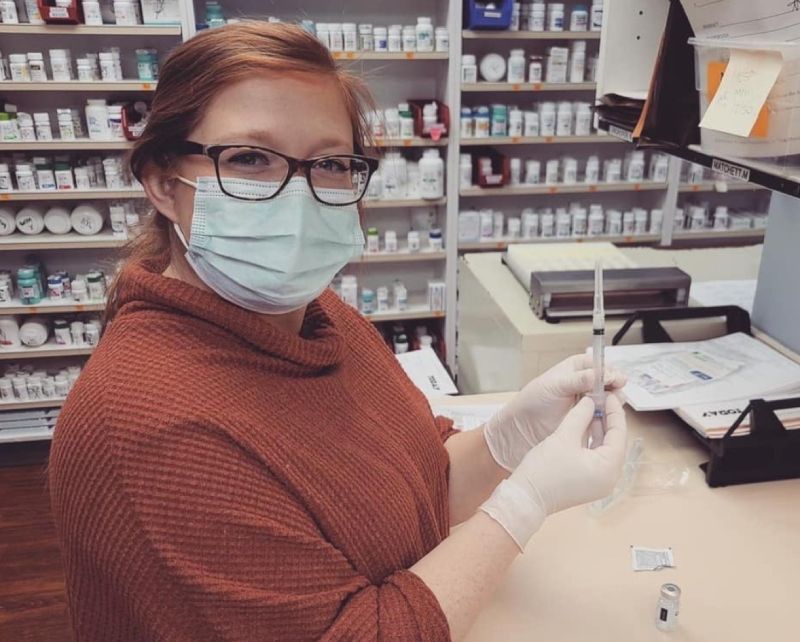How to Become a CCMA Online
If you are interested in becoming a certified clinical medical assistant, online training can help. Here is how you can become a CCMA online.
If you want to help others while working with interesting people, you should consider a Certified Clinical Medical Assistant (CCMA) career. Online training can help in becoming a CCMA.
According to the US Bureau of Labor Statistics, the employment of medical assistants is projected to grow by 16% from 2021 to 2031 — that’s about 123,000 job openings.
Use discount code at checkout this week, you will also receive a free venipuncture kit sent directly to your home!
Unlock your discount code here: > https://p.advclinical.org

What Does a Clinical Medical Assistant Do?
Medical assistants ensure that all administrative and clinical tasks are completed efficiently. Your role will be to support the medical team at your healthcare facility in all situations.
From an administrative perspective, you will:
- Answer phones
- Arrange hospital admissions and lab services
- Schedule appointments
- Understand insurance and billing information
- Handle prescriptions
- Educate patients
From a clinical point of view, you will:
- Assist physicians during patient examinations
- Draw blood and take other lab specimens
- Communicate with patients by interviewing them and getting their medical history
- Answer patient questions as best as you can
All these tasks can seem overwhelming and complicated, but a CCMA certification could prove very helpful.
What Is a CCMA certification?
The CCMA certification is offered by the National Healthcareer Association and is taken by clinical medical assistants who wish to retrieve official certification in their profession. The average salary for a CCMA is approximately $35,000 a year. A medical assistant with CCMA certification can also pursue careers as a personal caregiver, physician’s assistant, clinical supervisor, registered nurse, or program manager.
Enroll in our 8-week online course to receive your nationally accredited CCMA certification. With the course, you get 12-month access to all training content. After completing the course, you will take the national NHA certification exam.
How To Earn a Medical Assistant Certification
1. Meet the CCMA Requirements
Medical assistant qualifications include additional education. In fact, 13.7% of medical assistants also have a bachelor’s degree. Most other medical assistants have a high school diploma or General Equivalency Diploma or commonly earn an associate degree or diploma degree. These programs range from 6 to 24 months, with 2-year programs being the most common.
Depending on your state, you may also need to undergo specific training requirements because you’ll be performing certain procedures on patients. In some states, there will be restrictions on what type of services a medical assistant can provide.
For example, in California, you must undergo 10 hours of training and perform 10 tests with close supervision as you need to perform procedures with injections. In Montana, a medical assistant can’t perform invasive procedures like injections unless a physician supervises them.
CCMA Exam
Consider getting your online CCMA certification to get your foot in the door. Technically, medical assistants do not need to be certified, but with medical liability concerns, a certification can help you stand out. With a CCMA certification, you have the fundamental skills to provide safe and top-quality care to patients.
Where to get medical assistant certification
You can get your CCMA certification online. You will be ready for the exam with the right training program and a commitment to studying.
2. Find a Training Program and Enroll
There are many different medical assistant training programs available, but look for three things in your program:
- Accreditation
- Length of the program
- Financial aid or payment plans
With these in mind, you can find the right program to help you pass the exam and start your career. You also want to choose a program that gives you flexibility with access to the material. Life happens, and you can lose track of time. If you have the material for 12 months, you can study at your own pace. You can even retake the course if you didn’t pass the first time.
3. Dedicate Time to Study
The online training programs are usually self-paced. So, you must dedicate time and energy to completing the self-study. You’ll learn everything from human anatomy, privacy regulations, and knowledge about laboratory and diagnostic techniques.
Programs will also teach you how to practice virtually and perform practical skills like taking vitals, administering vaccines or injections, and assisting with surgical procedures. Practice often and review the study guides in detail.
4. Complete the NHA Test
Use the material to prepare for the National Health Career Association (NHA) exam. The exam has 150 test questions on various topics, evenly weighted. You will have 3 hours to complete the exam.
Roughly 54% of all exam questions cover clinical patient care. The test will focus on basic science and foundational knowledge, anatomy and physiology, and administrative skills.
If you’ve done your training program and reviewed test questions, you will be better positioned to pass the exam and start your career as a CCMA. The certification is valid for two years.
5. Maintain Your Credentials
Keep up with recertification by earning continuing education units. Earn 60 CEUs during the five years before submitting your application. To recertify for CCMA, you must show proof of CPR certification, submit continuing education documentation and your certification renewal form, and complete one hour of classroom instruction. These continuing education classes are taken by professionals and led by approved providers.
Clinical Medical Assistant vs. Administrative Medical Assistant
Any successful medical office has exceptional medical assistants that support the delivery of patient care and even complete some administrative tasks. There are many types of medical assistants, and they work across various areas of healthcare in physicians’ offices, hospitals, and other healthcare facilities.
Use discount code at checkout this week, you will also receive a free venipuncture kit sent directly to your home!
Unlock your discount code here: > https://p.advclinical.org

Clinical Medical Assistant
These assistants specialize in clinical work and are responsible for meeting and working directly with patients. Clinical medical assistants are at the forefront of patient care and vital members of a healthcare team. Essential qualities of an excellent clinical medical assistant include technical, analytical, and interpersonal skills. Along with understanding medical charts and taking a patient’s vital signs, there are several duties assigned to clinical medical assistants.
What skills can a CCMA perform?
- Checking patients in and out
- Handling injections and administering medications
- Taking vital signs
- Performing lab procedures, electrocardiograms (EKG), phlebotomy, and cardiovascular testing
- Communicating in medical settings with various individuals
- Documenting a patient’s medical history and working with electronic health records
- Assisting medical professionals with exams
- Preparing patients for examinations and X-rays
Administrative Medical Assistant
These assistants typically perform most office duties and work at the front desk of medical treatment facilities like doctors’ offices. Handling administrative tasks for doctors allows them to focus on evaluating and treating patients. If you’d like to work in medicine but don’t want a hands-on role, you should consider administrative medical assistant positions over clinical medical assistant work. There are also fewer education requirements which make it possible for you to explore a position as an administrative assistant before enrolling in college.
Get Your CCMA Training Online Today!
A career as a CCMA offers you interaction with patients and a chance to practice clinical skills. Now that you know the responsibilities of a medical assistant and potential CCMA career paths, you’re ready to get your CCMA certification online.
Adv Clinic has an 8-week online course that allows you to get your nationally accredited CCMA certification. After you complete this course, you can take the NHA certification exam. You also get 12-month access to the content. Enroll in our course today and feel confident in your decision with our 14-day 100% money-back guarantee.
Use discount code at checkout this week, you will also receive a free venipuncture kit sent directly to your home!
Unlock your discount code here: > https://p.advclinical.org



